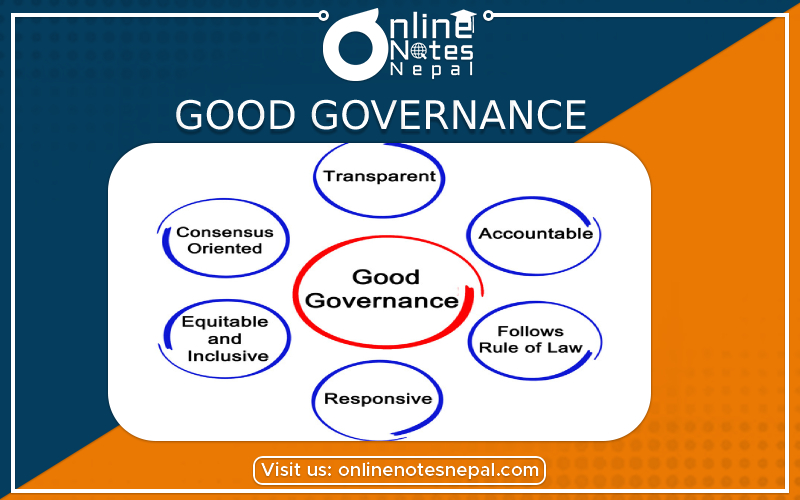Published by: Nuru
Published date: 09 Dec 2021

In this chapter, we discuss about the Good Governance, features of Good Governance, and obstacles of it. Grade 8 Social Studies, Reference Notes.
Governance refers to the system or manner the government works in. According to the World Bank 'using political power for the management of various affairs of a state is governance'. Governance describes the process of decision-making and process by which its decisions are carried out.
Good governance maintains that decisions are taken and carried out in fair manner. The decisions are directed towards the promotion of public welfare.
The concept of good governance was developed with the demand that political power should be used in favour of people. Donor nations and international financial institutions like IMF, ADB or World Bank impose good governance as 'aid conditionally'. They agree to offer aid and loans on the condition that reforms for good governance are made.
Good governance, in a broader sense, is to rule according to the need and wish of people as well as for their welfare.
Features of Good Governance are:
Obstacles of Good Governance in Nepal are: